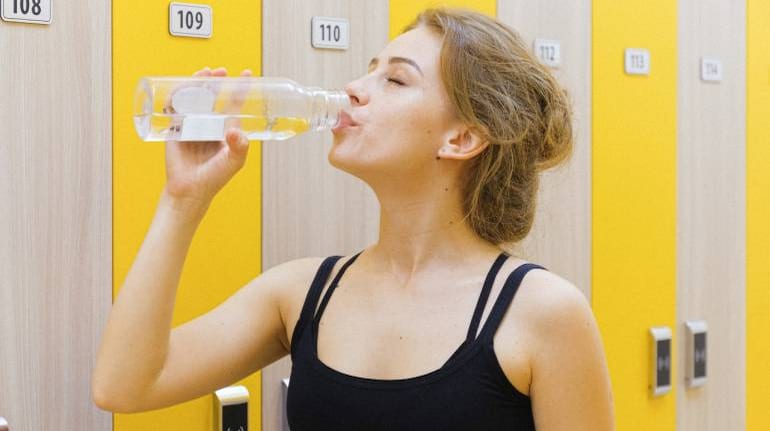



Understanding why you might still feel dehydrated despite drinking enough water involves considering numerous factors that affect our body's hydration levels. Signs of dehydration include headaches, fatigue, dry skin, constipation, dark urine, and muscle cramps, as well as infrequent urination, which indicates inadequate fluid intake.
There are several reasons why you might feel persistently dehydrated even when you're drinking the recommended amount of water and some of them involves sweating, diuretic medications and electrolyte imbalances, says doctor Ravi Jain, a Hyderabad-based skincare expert.
Tension headache causes, symptoms and cure: Decode the triggers and know how to avoid them
Electrolyte imbalance
An imbalance in electrolytes like sodium, potassium, and magnesium can occur when we consume a lot of water without enough fruits and vegetables. This imbalance can trigger thirst, leading to more water consumption and further dilution of electrolytes. Foods such as bananas, apples, and coconut water are rich in these electrolytes and can help maintain hydration.
Pounding headache? You could be suffering from seasonal migraine
Sweating
Intense workouts or hot conditions can cause significant fluid and electrolyte loss through sweating. Replenishing these electrolytes with sports drinks can help maintain hydration and electrolyte balance, but it is essential to be aware of the sugar content in these beverages.
Hunger
Dehydration and hunger can present similar symptoms, such as irritability, especially in individuals with blood sugar irregularities.
Migraine: What causes these throbbing headaches, and common foods that can trigger migraine attack
Time for hydration
Rehydrating your body takes time. Fluids initially enter the circulatory system before distributing to other tissues. Therefore, it may require more water than you initially consumed to ensure proper hydration.
Diuretic medications
Some medications act as diuretics, which can lead to dehydration by expelling salt and water from the body. Taking these medications can result in the loss of essential fluids and electrolytes.
Home remedies for migraines and how to improve magnesium levels in the body
Tips for increasing hydration
In addition to the above factors, consider these tips to maintain proper hydration:
Drink when thirsty: Pay attention to your body's signals for water needs, particularly during workouts, dry climates, high temperatures, or illness.
Prioritise water: While other beverages like soda, juice, or flavoured drinks are tempting, water remains the most reliable and hydrating option.
Consider timing: Spread your water intake throughout the day for optimal absorption, avoiding consuming substantial amounts at once.
Eat hydrating foods: Fruits and vegetables with high water content also provide essential minerals and electrolytes for hydration.
It's crucial to remember that while water is vital for health, overhydration is also possible. Consuming excessive amounts of water can lead to water intoxication, which dilutes essential blood electrolytes like sodium, potassium, magnesium, and calcium. So, it's essential to strike a balance and listen to your body's cues for hydration.
Discover the latest Business News, Sensex, and Nifty updates. Obtain Personal Finance insights, tax queries, and expert opinions on Moneycontrol or download the Moneycontrol App to stay updated!
Find the best of Al News in one place, specially curated for you every weekend.
Stay on top of the latest tech trends and biggest startup news.